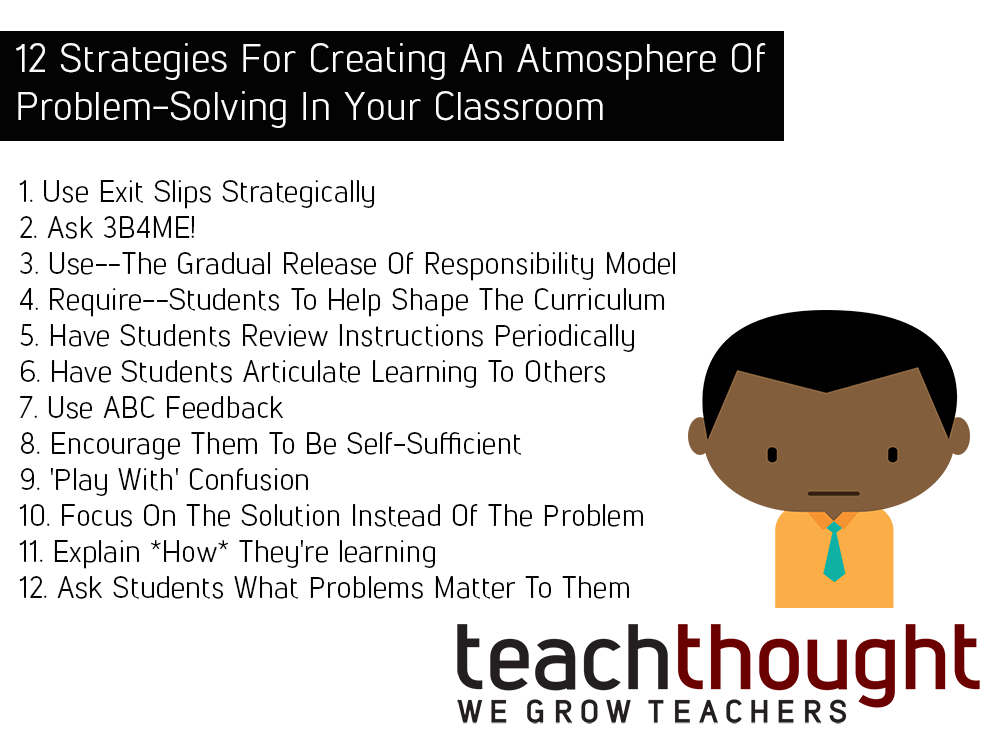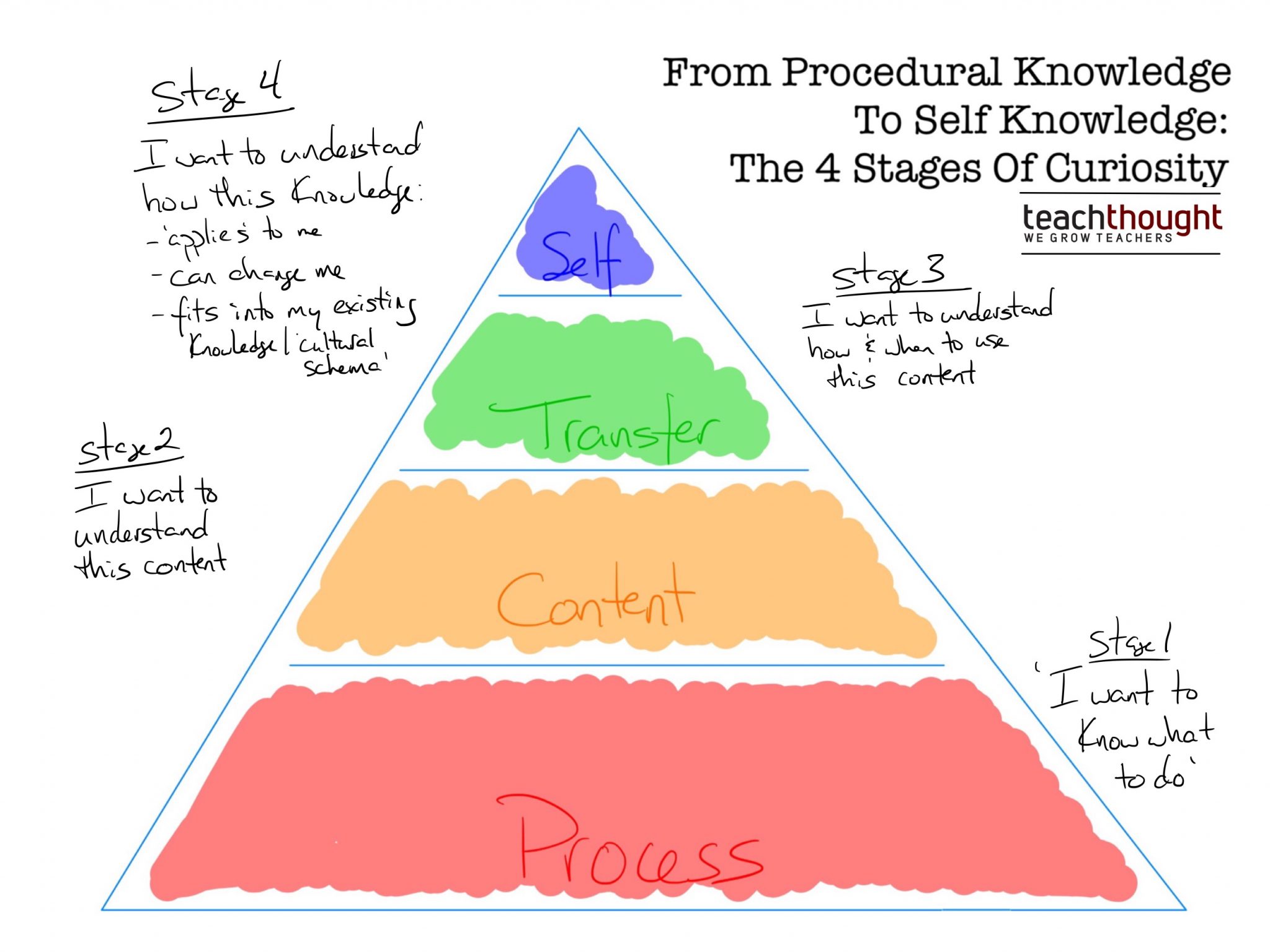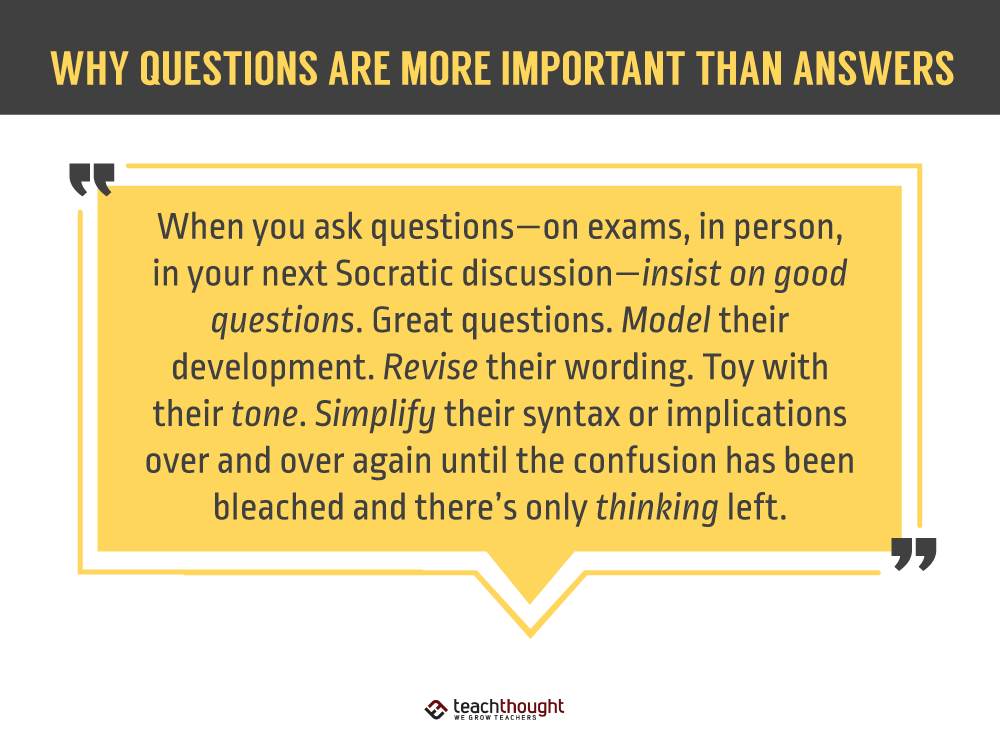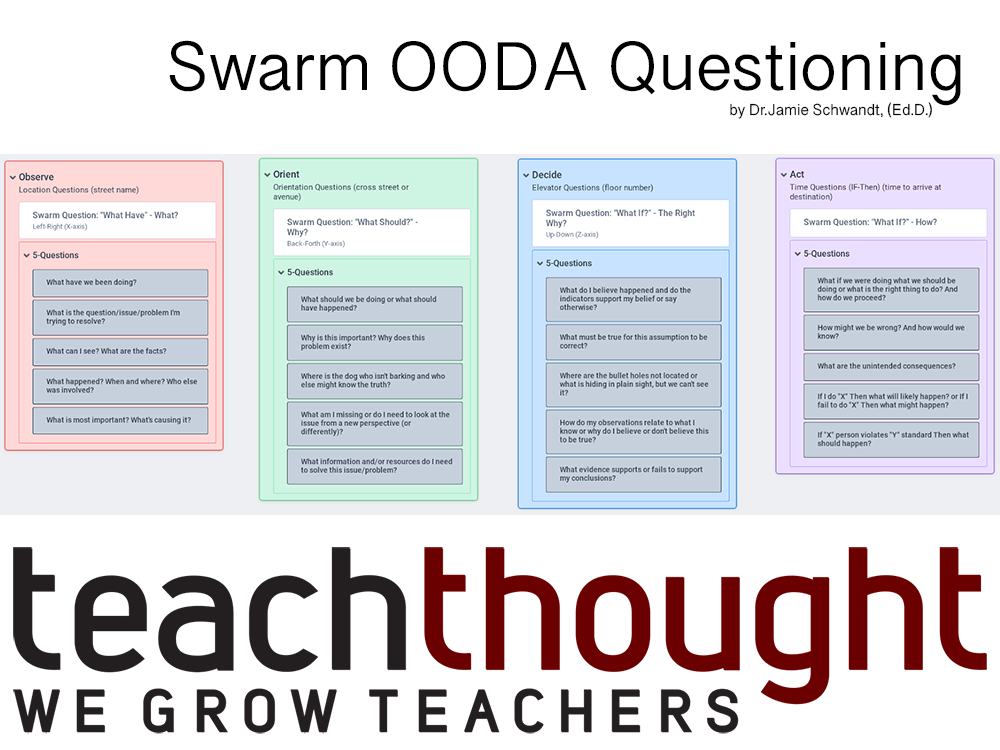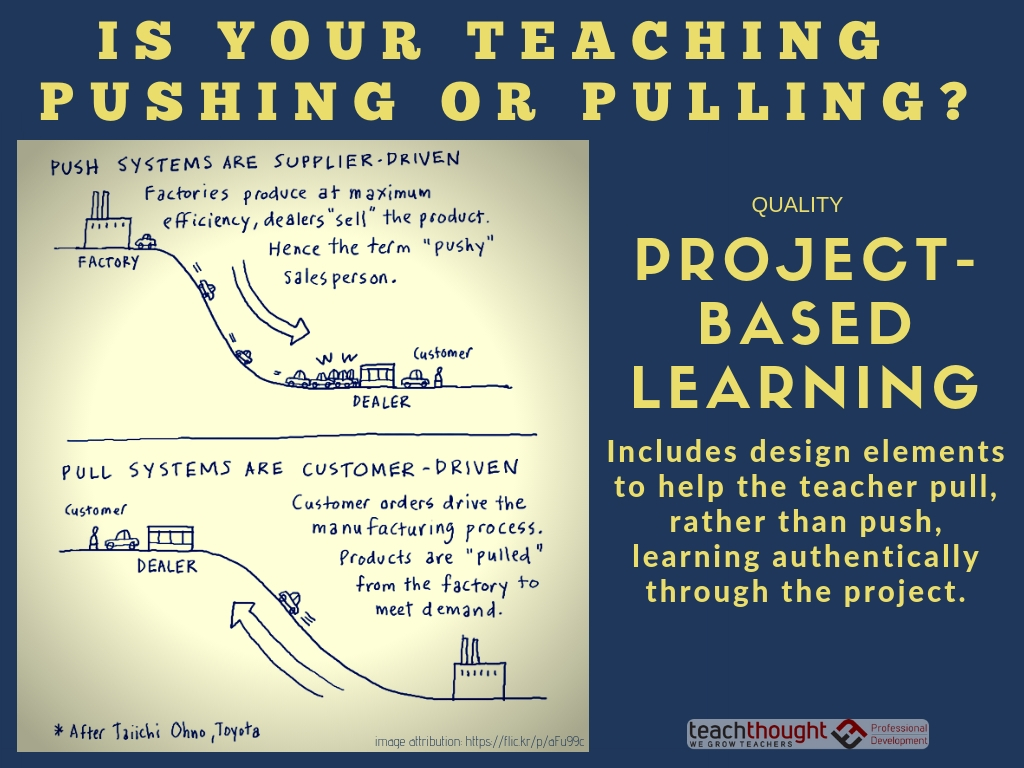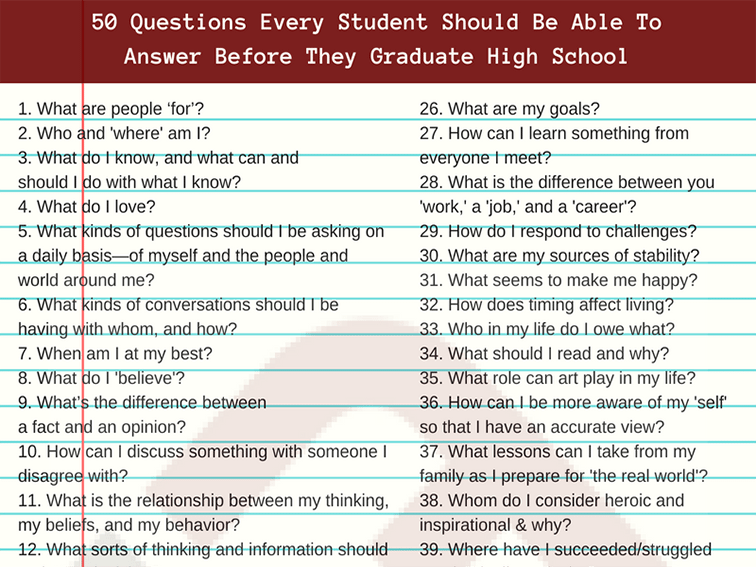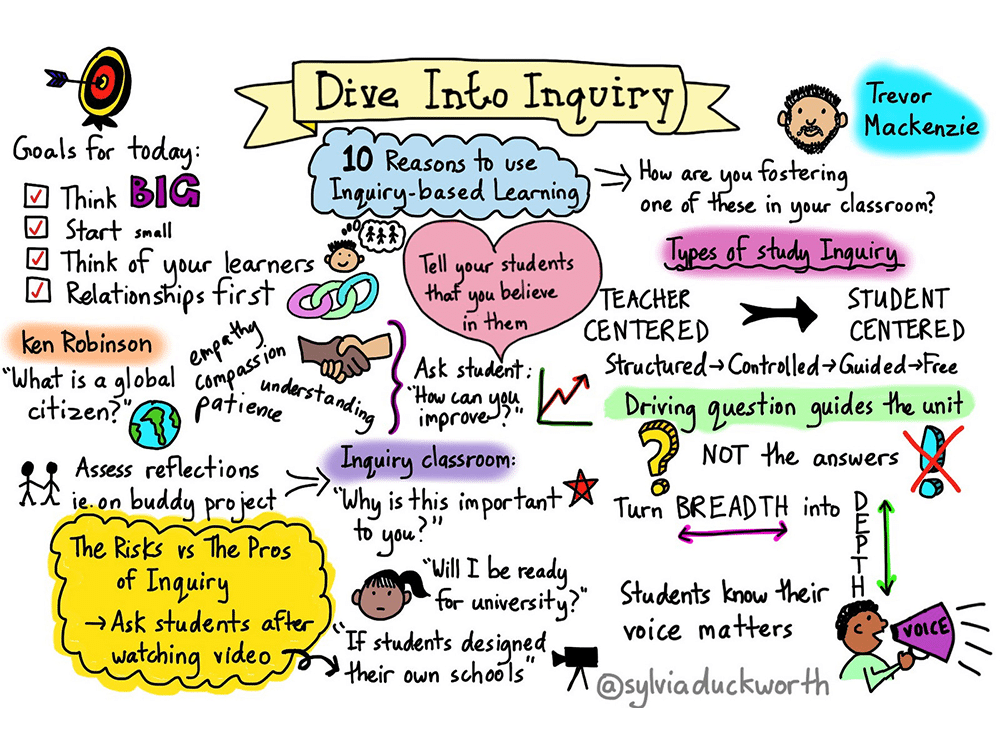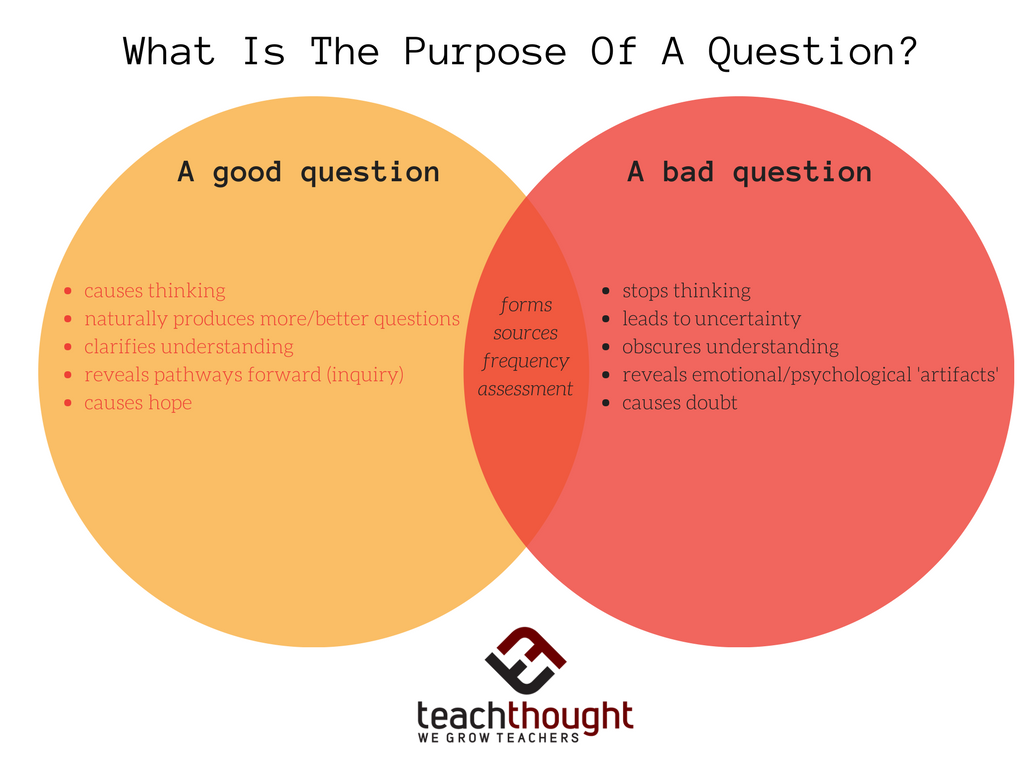Tag: Inquiry
12 Strategies For Creating A Culture Of Problem-Solving In…
Problem-solving and critical thinking are both skills and habits that allow students to apply and transfer academic knowledge into the real-world.
From Procedural Knowledge To Self Knowledge: The 4 Stages…
In the first stage of curiosity, students are primarily concerned with procedural knowledge: What they’re supposed to do and how.
Why Questions Are More Important Than Answers
Why are questions more important than answers? Because answers stop learning while questions start it, contextualizing what we don’t know.
What Is Four-Dimensional Questioning?
What is Four-Dimensional questioning? The way you ask a question yields different results and can lead you in different directions.
Are You Pushing Or Pulling Students In Your Classroom?
No longer does the teacher need to be only responsible for ‘covering’ content, a practice that often feels like climbing the down…
Students Should Be Able To Answer 50 Questions Before…
When should I lead and when should I follow? When should I talk and when should I listen–and what is the role…
10 Reasons To Use Inquiry-Based Learning In Your Classroom
Much like project-based learning, there are many reasons to use inquiry-based learning in your classroom–starting with creativity and personalization.
What Is The Purpose Of A Question?
The source, frequency, and quality of questions from students are among the best data points to evaluate thinking in your classrooms.
